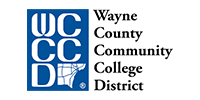Transfer Pathways
Transfer Pathways simplify the transfer process and make it easier to complete your associate degree and transition to Wayne State University. You can choose from multiple areas of study within each pathway, saving time and money without losing credits or taking additional courses.
If you complete an associate degree at a community college within one of the pathways, you are guaranteed admission and junior status at Wayne State University with an assurance that your credits will transfer. Wayne State will provide a clear roadmap to earning your four-year degree with continued advising, support and other opportunities through graduation.
To get started
- Opt in to Wayne State Transfer Pathways
- Schedule a Wayne State University Transfer Student Success Center appointment
- Meet with your academic advisors and track your academic progress
Benefits of pathways
- Transfer admission guaranteed. Follow the pathway for guaranteed admission into one of our world-class academic programs.
- Cost savings. Complete an associate degree, Michigan Transfer Agreement and pathway courses that save you thousands in tuition.
- Maximize transfer credit. Start with junior status at Wayne State with assurances that your credits will transfer.
- Personalized transfer support. Receive continuous transfer advising for the guidance to graduate on time.
- Access and resources. Find supplemental academic support, career resources, student organizations and workshops to stay connected with Wayne State.
- Reverse transfer. Transfer credits earned at Wayne State to your partner college to earn your associate degree.
- Jump-start graduate school. Start graduate school as you finish your bachelor's through AGRADE.




